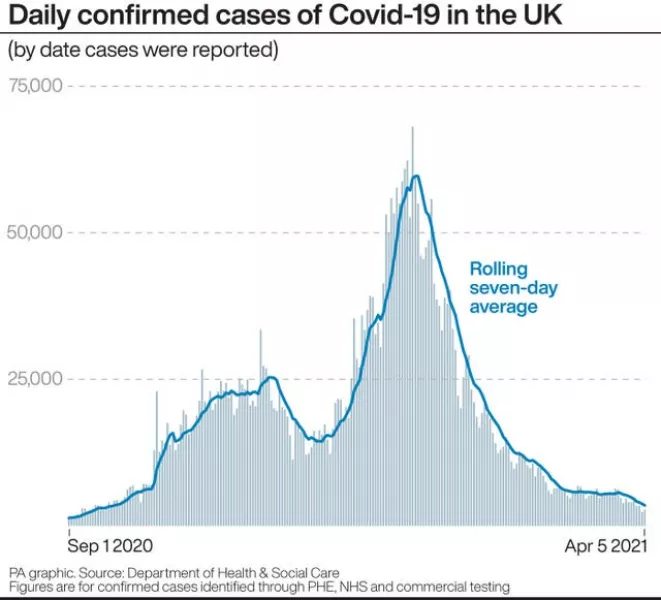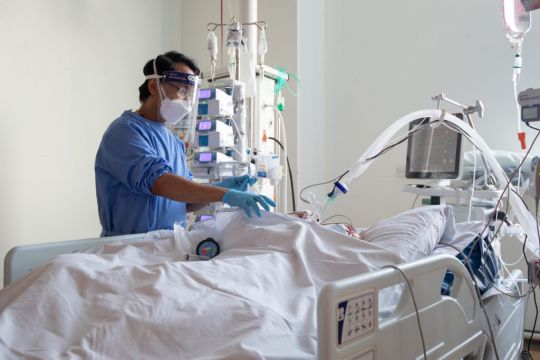There could be a “resurgence” of Covid-19 infections as the UK continues on its route out of lockdown, experts have warned.
Dr Mike Tildesley, from the University of Warwick and a member of the Spi-M modelling group which advises the UK government, said “there may well be” a third wave in the UK but probably not as high as some modelling predicts.
He said there could be a potential rise in infections as more social mixing is permitted.
Professor Mark Walport, former chief scientific adviser to the government, said “very good progress” was being made on the roadmap, but a third wave was possible if the brakes are taken off completely.

It comes after a paper from experts at the London School of Hygiene and Tropical Medicine suggested that lifting restrictions in the next stage of the roadmap “may lead to a small surge of cases and deaths”.
And their modelling suggested that stage four in June, when restrictions are expected to be lifted completely, could “lead to a larger surge of cases and deaths comparable to that seen during the first wave”.
They cautioned their findings were “preliminary” and made “pessimistic assumptions” about the later stages of the roadmap.
Summer wave
Scientists at the University of Warwick also shared a similar conclusion that a “distinct third wave of infection” would arise due to the current rate of planned unlocking, with hospital admissions peaking between late July and mid-August.
Minutes from the Scientific Advisory Group for Emergencies (Sage) meeting on March 31st said there could be resurgences in hospital admissions “of a similar scale to January 2021 after later stages of the road map”.
But Dr Tildesley told LBC radio: “I think we do have very high levels of vaccination now, we do need to remember this, we are protecting our vulnerable.
“But the vaccines are not 100 per cent protective so when we switch from an R number less than 1 that we have at the moment, to a lot of mixing later on, we may get a resurgence.
“I don’t expect we will have a resurgence of the same scale that we saw in January.
“So then there needs to be some very serious questions asked. If we do see a rise in cases, if we do start to see hospital occupancy go up a little bit, are we going to put in controls or is it something that we’re just going to try to manage with local testing and so forth?
“I think that’s the question the government are going to potentially have to answer as we get towards the summer.”

However, Dr Tildesley also said that he was “pleasantly surprised” about the levels of cases as schools reopened and said that if cases continued to stay low there could be some arguments for lifting restrictions in the roadmap sooner.
Meanwhile, Prof Walport told BBC Breakfast: “It’s clear that we’re making good progress along the roadmap, and it’s entirely appropriate that the first set of restrictions are being relaxed, so that makes very good sense indeed.
“But we’re a long way from taking the brakes off completely. The vaccine rollout is going incredibly well… we’ve seen deaths fall fairly precipitously… all very good news, but we’ve only got to look across the Channel and see that France currently has over 39,000 new cases a day, so the virus is still very much around and if we take all the brakes off, then it’s quite clear that there is a very substantial risk of a further wave of infection.”
He added: “What the Spi-M modelling has shown is that even with a pretty effective vaccine, it’s not perfect, not everyone will be vaccinated, and there will still be quite a few people by June who aren’t immune, and that creates the setting for potentially another wave.
“It’s likely to be different from the first one because we know that the vaccines are very good at keeping people out of hospital and stopping people dying. And that’s why it’s important to really focus on what the data at the time are actually showing.”







